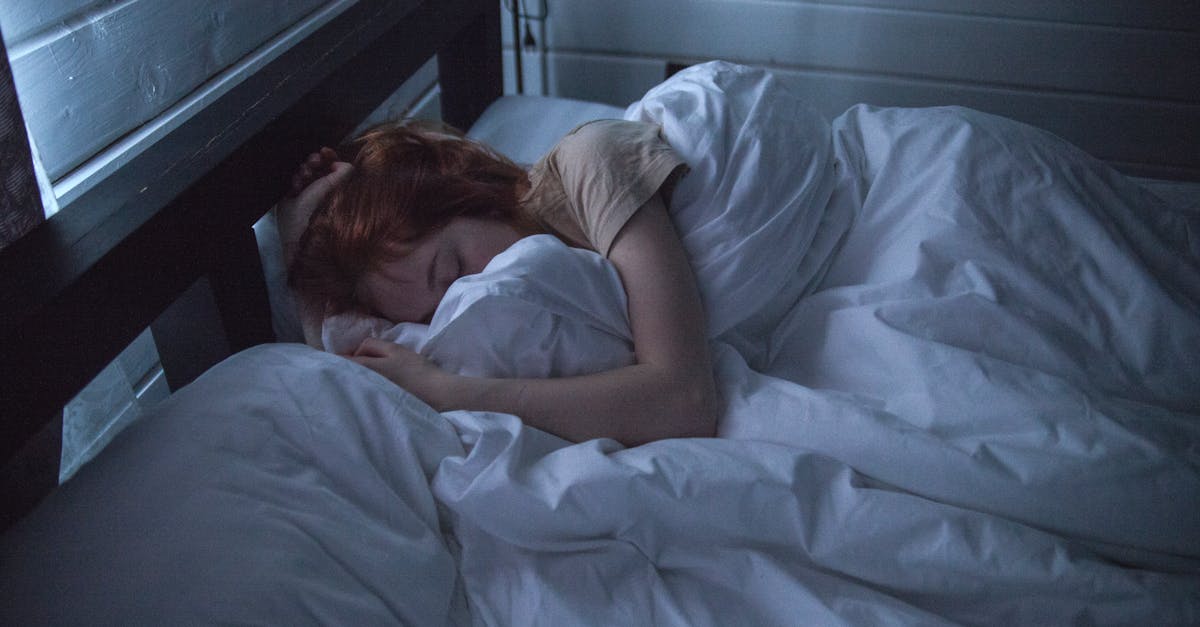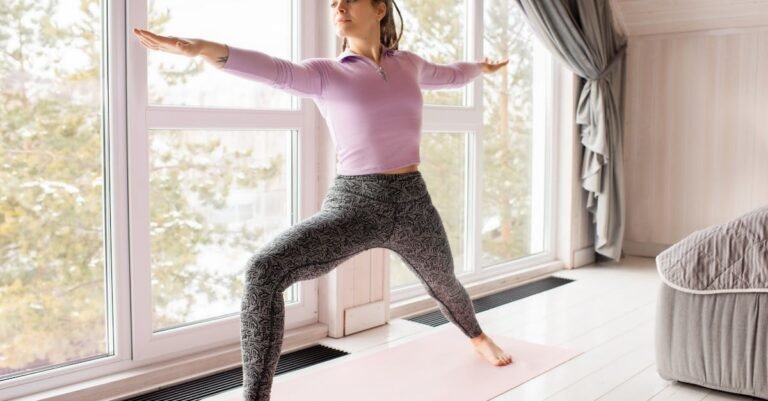Ever find yourself staring at the ceiling at 2 AM, counting sheep that just won’t cooperate? Or maybe you drag yourself out of bed feeling like you wrestled a bear all night, even after getting eight hours? You’re not alone! So many of us are juggling busy lives, maybe working from home, and feeling the stress pile up, which totally messes with our sleep and leaves us feeling drained. Good news, though! You don’t need fancy gym memberships or complicated routines to fix it. This article is gonna show you how simple workouts you can do right in your living room can actually help you sleep like a baby and wake up feeling refreshed and ready to go. Let’s dive in!
Why Moving Your Body Helps You Snooze Better
Okay, so how does doing a few jumping jacks or stretches actually help you sleep? It sounds kinda backward, right? Exercise gets you energized! But here’s the deal: moving your body helps set your body’s internal clock, kind of like winding up an old watch. This clock, sometimes called the circadian rhythm, tells your body when to feel awake and when to feel sleepy. When you work out, your body temperature goes up. Later, as it cools back down, it’s like a signal to your brain saying, “Hey, time to wind down for sleep!” Plus, exercise is an awesome stress buster. You know that antsy, worried feeling that keeps your mind racing at night? Physical activity helps burn off those stress hormones, leaving you feeling calmer and more ready for rest. Think of it like playing fetch with a super energetic puppy – get them moving, and they’ll zonk out later!
Timing is Everything: When Should You Work Out?
So, you’re ready to move, but *when* should you do it? Does it matter? Yep, it kinda does! Doing a really intense, heart-pounding workout right before you hop into bed can sometimes backfire. It might leave you feeling too buzzed and wide awake, like drinking coffee before a nap. Generally, morning or afternoon workouts are fantastic choices. A morning sweat session can wake you up better than caffeine and sets a positive tone for your whole day, which can lead to better sleep *that night*. An afternoon workout is great for shaking off work stress before you head into your evening. What about evenings? Gentle stuff like light stretching or some calming yoga poses are usually A-okay and can actually *help* you wind down. It really depends on you and how your body reacts. Just listen to your body – if evening workouts leave you wired, try shifting them earlier.
Gentle Moves for Evening Wind-Downs
If evenings are your only time, or if you just want something to help you relax before bed, focus on gentle, calming movements. We’re not talking about burpees here! Think about things that feel good and don’t get your heart rate soaring.
- Stretching: Spend 10-15 minutes doing slow, gentle stretches. Focus on areas that feel tight, like your legs (hamstrings, quads), your back, and your shoulders. Hold each stretch for about 20-30 seconds, breathing deeply. No bouncing!
- Yoga: Simple, restorative yoga poses are perfect. Try Child’s Pose (great for relaxing the back), Cat-Cow (good for spinal flexibility), or gentle twists while lying down. The key is to move slowly and pay attention to your breath.
- Mindful Movement: Even just some slow ankle circles, wrist rotations, or gentle neck rolls while sitting or lying down can release tension.
These kinds of activities help ease muscle tightness, slow your breathing, and tell your nervous system it’s safe to chill out, making the transition to sleep much smoother.
Not Too Much, Not Too Little: Finding Your Sweet Spot
While moving is good, you *can* have too much of a good thing. Going super hard with workouts every single day, especially without enough rest, can actually stress your body out and mess with your sleep. It’s called overtraining, and it can leave you feeling exhausted but unable to sleep well. Weird, right? The goal isn’t to completely wipe yourself out daily. Consistency is way more important than intensity. Aim for regular, moderate activity most days of the week. And remember to listen to your body! Some days you might feel up for a brisk walk or a bodyweight circuit; other days, gentle stretching might be all you need. Pay attention to how you feel and how you sleep after different types of workouts. Let’s imagine a friend, Chloe (just an example!). She decided to do high-intensity interval training (HIIT) every night right before bed, thinking more sweat meant better sleep. Surprise – she started sleeping terribly! When she switched her HIIT to the mornings and did just light stretching at night, her sleep dramatically improved. It’s all about finding *your* balance.
Fueling Up Right for Recovery and Sleep
Exercise is just one piece of the puzzle. What you eat and drink also plays a huge role in how well you recover and sleep. Think about it: your body needs fuel to repair itself after activity, and certain foods and drinks can either help or hurt your sleep. After a workout, especially a tougher one, your muscles need protein to repair and carbs to refill their energy stores. You don’t need giant protein shakes, just aim for balanced meals. Equally important? Water! Being dehydrated can make you feel sluggish, give you headaches, and yep, disrupt your sleep. Sip water throughout the day, especially if you’ve been sweating. And try to avoid big, heavy meals, super sugary snacks, caffeine (obviously!), or alcohol too close to bedtime. They can all interfere with your body’s natural sleep cycles and leave you tossing and turning.
Creating a Relaxing Pre-Sleep Routine (Workout Included!)
Okay, let’s put it all together. Those gentle evening movements we talked about? They work even better when they’re part of a whole wind-down routine. Your body loves predictability. Having a consistent pre-sleep ritual signals to your brain, “Okay, sleepy time is coming!” Try creating a sequence that works for you. Maybe it looks like this: finish your chores, take a warm (not too hot) bath or shower, then spend 10-15 minutes doing those gentle stretches or yoga poses in low light. Afterward, maybe read a real book (not on a bright screen!) or listen to calming music for a bit before turning out the lights. The key is making it a habit. The gentle movement becomes a physical cue, along with the other steps, that helps transition your body and mind from busy day mode to rest mode.
So, there you have it! Getting better sleep and feeling more recovered doesn’t always require complicated solutions. Sometimes, the answer is moving your body right in your own home. Remember, it’s about finding what works for *you*. Think about timing your more energetic workouts earlier in the day and maybe adding some gentle stretching or yoga to your evening wind-down routine. Listen to your body – don’t push too hard, especially close to bedtime. Pair that movement with good hydration and mindful eating, and create a relaxing pre-sleep ritual. You might be surprised how these simple changes can help you ditch the restless nights and wake up feeling genuinely recharged and ready to tackle your day. Sweet dreams!










